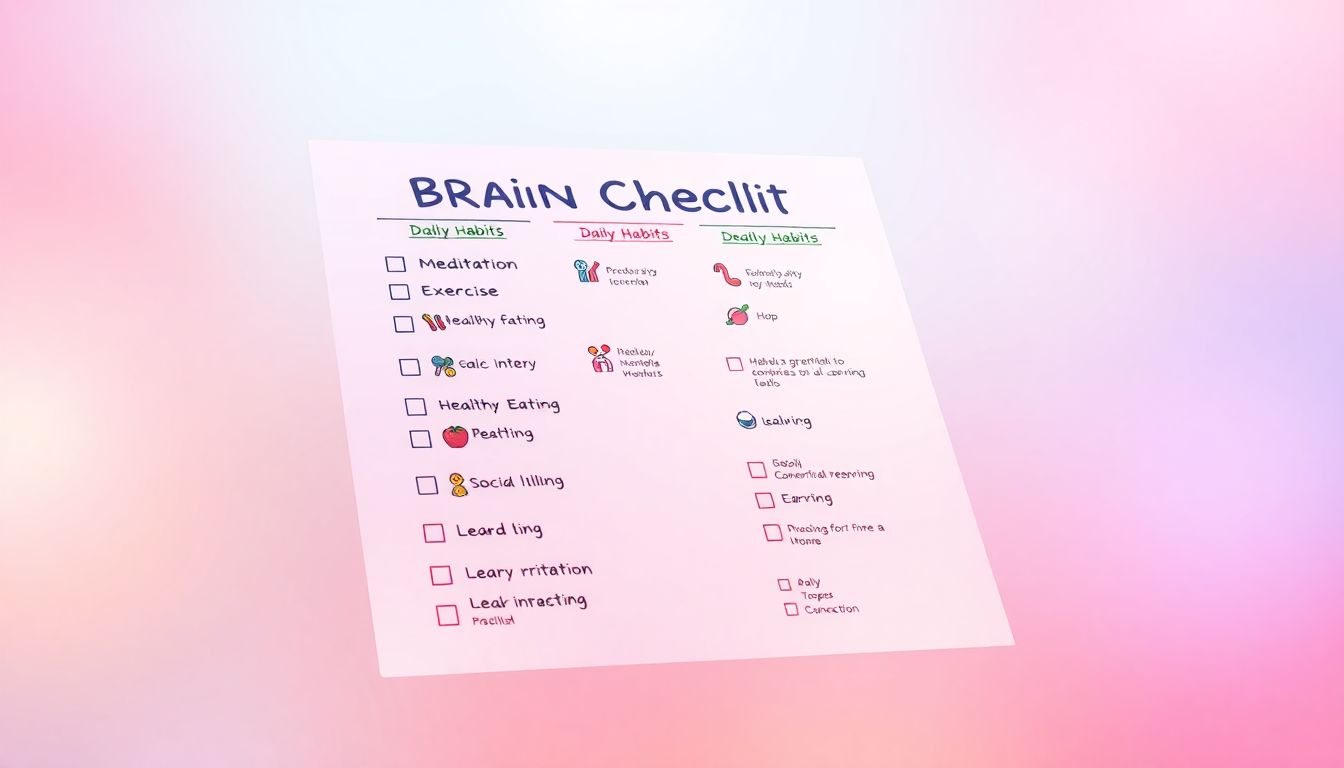Frustratingly, we have all experienced moments of brain fog and memory lapses. The good news is your brain’s health is in your own hands, as daily habits can make a huge difference in how well your brain operates. A sharper mind isn’t as hard as you think; keep reading to find the checklist that can keep you on your way.
Fuel Your Brain: Nutrition for Cognitive Function
What you eat for food is capable of impacting brain-power. Food acts as one of the strongest links to how your brain functions. When the brain is fed the right nutrients, its performance improves in terms of focusing, remembering, etc. With that in mind, let us have a look at some of the requisite nutritional habits.
Power Up with Antioxidants
Antioxidants serve as protection against the unmerited attacks on our brain. They tow away harmful entities from causing any further damage. You might think of them as rust protectors for the brain. Foods like berries, dark chocolate, and leafy greens are loaded with antioxidants.
- Berries: Blueberries, strawberries, and raspberries are great sources.
- Dark Chocolate: Choose one high in cocoa content for maximum health benefits.
- Leafy Greens: Spinach, kale, and other greens are brain-boosting powerhouses.
Actionable Tip: Try to consume at least two servings a day of foods rich in antioxidants. For example, toss berries into breakfast or treat yourself to a square of dark chocolate after lunch.
Good Fats Matter
Healthy fats are critical linchpins in building brain cells and maintaining their health. Think of them as the building blocks of the foundations of a strong, healthy brain. Omega-3 fatty acids are indispensable. They assist in memory and an array of other functioning of the brain.
- Omega-3 Fatty Acids: Present in brown fish like salmon and in flaxseeds and walnuts.
- Avocados: Creamy and versatile.
- Olive Oil: Use it for cooking and salads.
Actionable Tip: Instead of unhealthy fats (trans fats coming from processed foods), incorporate healthy fats into your daily diet by using olive oil instead of butter, and enjoy fish a couple of times a week.
Drink Your Brain
Dehydration can really mess up brain function. Even minor dehydration can affect your concentration and memory. Water can be likened to oil for a car; it keeps the brain functioning well.
Actionable Tip: Try to drink at least 8 glasses of water in a day. Keep a water bottle close. Watch for symptoms of dehydration, like headache, fatigue, and dizziness.
Brain Exercise: Mental Exercises for Cognitive Stimulation
The brain needs exercise just like your physique. Keeping fit and agile with mental exercises acts as a gym for your mind.
Work On Puzzles and Brain Games
Brain games and puzzles test the cognitive functioning of different types. This keeps the brain very alert through these mental stimulants. They increase problem solution skills, memory, and attention.
- Sudoku: A numbers puzzle which makes logic reasoning and deduction tests.
- Crossword Puzzles: Best for vocabulary and general information broadening.
- Chess: A planning and critical thinking game.
- Lumosity and BrainHQ: Applications that provide many brain-train games.
Actionable Tip: Puzzle time should be between 15-30 minutes each day. Make it into a playful competition. The brain thanks you for it.
Learn Something New Every Day
Letting your brain adopt flexibility and adaptability is what defines continuous learning. This process is called neuroplasticity. Teaching the brain a couple of new tricks or challenges with changes makes the brain tougher at learning.
- Online Courses: Coursera and edX offer courses about almost everything.
- Language Learning: An app such as that named Duolingo makes the process of learning another language quite interesting.
- Reading: Go read a book about some topic that interests you.
- Musical Instrument: Learning to use an instrument can enhance your cognitive skills.
Actionable Tip: Register for a class or just find some time to learn a new thing each day. Even a bit of knowledge goes a way.
Mindfulness and Meditation
Studies also indicate that mindfulness and meditation can enhance one’s focus, attention, and memory. Calm the mind by decluttering thoughts. It actually is like defragmented computers, which optimizes the system.
Actionable tip: Start practicing meditation for 5-10 minutes daily and keep increasing the time until comfortable. There are loads of apps and guided meditations available to help you get going.
Move Your Body: Physical Activity for Brain Health
Physical activity improves health and the brain. The exercise improves blood into the brain and facilitates the production of fresh brain cells. A body in motion keeps the brain in motion.
Have Regular Aerobic Exercise
Aerobic exercise is beneficial for several reasons: pumps blood to the brain and stimulates neurogenesis (the generation of completely new brain cells).
- Brisk Walking: An easy, accessible exercise for most people.
- Running: It is certainly a more intense exercise that can provide great cardio benefits.
- Swimming: This is another low-impact exercise that can easily be tolerated by the joints.
- Cycling: An enjoyable way to get the heart up and moving.
Actionable Tip: At least 30 minutes every week, moderate-intensity aerobic exercises should be done on most days. You may want to identify enjoyable activities in order to make it easier to stick with them.
Add Some Strength Training
Strength training isn’t just for bulking the muscles; it should also include cognition improvement. It will also offer protection against cognitive decline due to aging. Lifting weights can certainly benefit your mind.
Actionable Tip: Incorporate strength training exercises into your who week at least twice.
Conclusion
In sum, a lot of daily habits are impacting brain health. Good nutrition, mental exercise, physical exercise, sleep, and stress management are all essentials. Build your daily routine around these habits.
